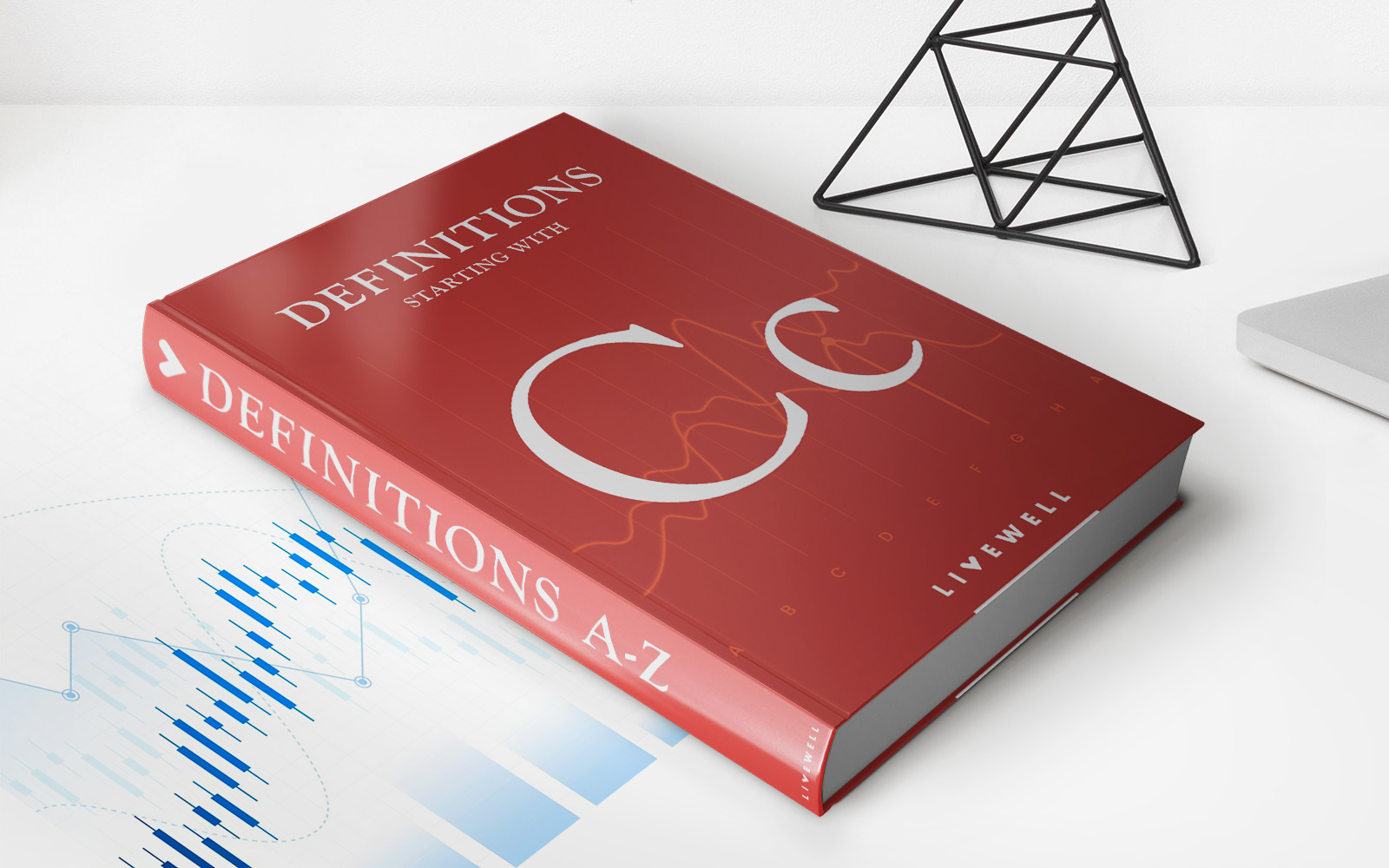

Finance
What Are Professional Fees In Accounting
Published: October 13, 2023
Learn about professional accounting fees and their importance in managing your finances. Gain insights into different types of fees and how they impact your financial decisions.
(Many of the links in this article redirect to a specific reviewed product. Your purchase of these products through affiliate links helps to generate commission for LiveWell, at no extra cost. Learn more)
Table of Contents
Introduction
Welcome to the world of accounting, where financial matters are meticulously organized and recorded to ensure the smooth operation of businesses and individuals. As you delve into the realm of accounting, you may come across the term “professional fees.” These fees play a vital role in the accounting realm, as they are the charges incurred for the professional services provided by accountants, financial experts, and other professionals in the field.
Professional fees in accounting encompass a wide range of services, ranging from bookkeeping and tax preparation to financial statement analysis and consultation. These fees are paid to professionals who possess the knowledge and expertise to handle complex financial matters and ensure compliance with regulatory requirements.
Understanding professional fees in accounting is crucial for businesses and individuals who rely on the expertise of financial professionals to manage their financial affairs effectively. This article will delve into the intricacies of professional fees in accounting, exploring the factors that influence their cost, the different types of fee structures employed by accounting professionals, and how to negotiate and manage these fees.
Whether you are a business owner seeking accounting services or an individual looking to navigate your personal finances, gaining insight into professional fees in accounting will enable you to make informed decisions and ensure the best value for your money.
Understanding Professional Fees in Accounting
Professional fees in accounting refer to the charges incurred for the expert services provided by accounting professionals. These professionals possess the knowledge, skills, and experience necessary to handle various financial tasks with precision and accuracy. The services provided can range from basic bookkeeping and tax preparation to complex financial analysis and consultation.
Accounting professionals offer their expertise to individuals, small businesses, corporations, and even non-profit organizations. They play a crucial role in helping these entities manage their financial affairs effectively, ensure compliance with tax and regulatory requirements, and make informed decisions based on accurate financial information.
The professional fees charged by accounting professionals depend on several factors, including the complexity of the services rendered, the level of expertise required, the time and effort invested, and the prevailing market rates. These fees are typically billed on an hourly, fixed, or retainer basis, depending on the specific agreement between the professional and the client.
When engaging the services of an accounting professional, it is essential to have a clear understanding of their fee structure and how they calculate their charges. This transparency will help both parties establish trust, effectively manage costs, and avoid any surprises when it comes to billing.
By understanding the intricacies of professional fees in accounting, you can better appreciate the value provided by accounting professionals and make informed decisions when it comes to hiring their services. With their expertise, you can rest assured that your financial matters are in capable hands and that you are receiving fair and reasonable compensation for the services rendered.
Factors That Affect Professional Fees
Several factors influence the professional fees charged by accounting professionals. It is essential to understand these factors to gain insight into how the fees are structured and why they may vary among different professionals and service providers.
- Complexity of the Services: The complexity of the accounting services required is a major determinant of professional fees. More intricate tasks, such as financial statement analysis, tax planning, and forensic accounting, require a higher level of expertise and effort, thus commanding a higher fee.
- Level of Expertise: The experience and expertise of the accounting professional also play a significant role in determining their fees. Professionals with advanced certifications, specialized knowledge, and a proven track record of success tend to charge higher fees due to the added value they bring to the table.
- Time and Effort: The amount of time and effort invested in completing the accounting tasks directly impacts the professional fees. Professionals typically track their time spent on each project or engagement and charge accordingly.
- Market Rates: The prevailing market rates for accounting services in a particular geographic location also influence professional fees. These rates can vary based on factors such as supply and demand, competition, and the cost of living.
- Additional Services: Any additional services or add-ons requested by the client can also affect professional fees. For example, if a client requires additional consultations, financial reporting, or personalized guidance, the fees may be adjusted accordingly.
It’s important to note that while fees may vary among professionals, the lowest fee is not always the best option. It’s advisable to consider the qualifications, experience, and track record of the accounting professional to ensure you receive quality service and accurate financial management.
By understanding the factors that influence professional fees in accounting, you can assess the value provided by different professionals and make an informed decision based on your specific needs and budget constraints.
Types of Professional Fees in Accounting
Accounting professionals employ various fee structures to charge for their services. The type of fee structure used depends on the nature of the services rendered, the client’s needs, and the agreement reached between the professional and the client. Here are some common types of professional fees in accounting:
- Hourly Rate Fee Structure: Under this fee structure, accounting professionals charge clients for the actual time spent on their projects. The professional assigns an hourly rate based on their expertise and market rates. The final fee is calculated by multiplying the hours worked by the hourly rate. This structure is commonly used for tasks that can have varying time requirements, such as tax preparation or financial consultation.
- Fixed Fee Structure: With the fixed fee structure, the accountant and the client agree upon a specific fee for a particular service or set of services. This fee remains constant regardless of the time or effort invested by the professional. Fixed fees are typically used for standardized services, such as preparing a tax return or performing an audit. This structure provides clients with cost certainty and allows them to budget for the service in advance.
- Retainer Fee Structure: This fee structure involves the client paying an upfront fee or retainer to retain the services of an accounting professional for a specified period. The professional then provides ongoing accounting services as needed throughout the retainer period. The fee may cover a certain number of hours of service or provide unlimited access to the professional for a predetermined scope of work.
- Fee Schedule for Specific Services: In some cases, accounting professionals may have a predefined fee schedule for specific services. This means that they have established a set fee for each service they offer, regardless of the complexities involved. Clients can refer to the fee schedule to determine the cost of a particular service before engaging the professional.
It’s worth noting that the fee structure used may vary among accounting professionals and may be negotiable depending on the client’s specific needs and circumstances. It’s advisable to discuss fee structures upfront to ensure clarity and transparency in billing arrangements.
Understanding the different types of professional fees in accounting allows clients to choose the fee structure that best suits their requirements and budget, ensuring a fair and mutually beneficial working relationship with the accounting professional.
Hourly Rate Fee Structure
The hourly rate fee structure is a commonly used method for determining professional fees in accounting. Under this structure, accounting professionals charge clients based on the actual time spent on their projects. The professional assigns an hourly rate, which is typically based on factors such as their level of expertise, experience, and prevailing market rates.
With the hourly rate fee structure, the accounting professional keeps track of the time spent on various tasks or engagements for the client. This can include activities such as bookkeeping, financial statement analysis, tax planning, or consultation. The total fee is then calculated by multiplying the number of hours worked by the agreed-upon rate.
This fee structure provides a level of transparency, as clients can see exactly how their fees are being calculated. It also allows for flexibility, as the client pays for the actual time and effort expended on their specific accounting needs.
However, it’s important to note that the hourly rate fee structure can sometimes lead to increased costs if the project requires more time than initially estimated. This could occur if unexpected complexities arise or if the client requests additional services beyond the original scope of work.
When engaging an accounting professional under the hourly rate fee structure, it is crucial to establish clear expectations and communication regarding the estimated time required and the potential for any additional charges. This will help both parties manage expectations and avoid any misunderstandings or surprises when it comes to billing.
Clients should also consider the qualifications and expertise of the accounting professional when determining the suitability of an hourly rate fee structure. A more experienced and efficient professional may be able to complete the same tasks in less time, ultimately resulting in lower fees for the client.
Overall, the hourly rate fee structure offers flexibility and transparency in accounting services. It allows clients to pay for the specific time and effort dedicated to their financial matters, ensuring a fair and equitable payment arrangement for both the client and the accounting professional.
Fixed Fee Structure
A fixed fee structure is a common method used in accounting to determine professional fees. Under this structure, an accounting professional and the client agree upon a specific fee for a particular service or set of services, regardless of the time or effort involved in completing the task. This fixed fee provides clients with cost certainty and allows them to budget for the service in advance.
The fixed fee structure is often used for standardized services that have well-defined scopes of work, such as preparing a tax return, conducting a financial statement audit, or providing monthly bookkeeping services. The fee is determined based on factors such as the complexity of the task, industry standards, and the level of expertise required to perform the service.
One of the advantages of the fixed fee structure is that clients know the exact amount they will be charged upfront, regardless of any unforeseen circumstances or additional time invested by the accounting professional. This provides peace of mind and eliminates the worry of unexpected invoice surprises.
However, it’s important for both the accounting professional and the client to clearly define the scope of work covered by the fixed fee. Any additional services or tasks outside the agreed-upon scope may be subject to additional charges or require a separate fee arrangement.
Another consideration with a fixed fee structure is the potential trade-off between cost certainty and the actual time and effort required to complete the task. The accounting professional may need to estimate the time involved and set the fixed fee accordingly. If the actual time exceeds the estimate, the professional may bear the difference as part of their commitment to the fixed fee. Conversely, if the actual time is less than estimated, the client still pays the fixed fee agreed upon.
When engaging an accounting professional under a fixed fee structure, it’s important to have open and honest communication about the services included, any potential limitations, and any extras that may require additional fees. This ensures that both parties have a clear understanding of the expectations and a mutually beneficial working relationship.
Overall, the fixed fee structure offers clients predictability and allows them to plan their budget more effectively. It also encourages accounting professionals to be efficient and deliver services within the predefined scope, fostering transparency and trust between the client and the professional.
Retainer Fee Structure
The retainer fee structure is a common approach used in accounting to establish professional fees. Under this arrangement, the client pays an upfront fee or retainer to secure the services of an accounting professional for a specified period. This fee serves as a commitment from the client and ensures ongoing access to the expertise of the accounting professional as needed.
With the retainer fee structure, the accounting professional typically provides ongoing accounting services throughout the retainer period. The retainer fee can cover a predetermined number of hours of service, or it can provide the client with unlimited access to the professional for a specified scope of work. The specific terms of the retainer agreement are determined in advance and outlined in a formal contract between the client and the professional.
One of the main advantages of the retainer fee structure is that it provides clients with a dedicated resource for their accounting needs. Clients have the assurance that they can reach out to the accounting professional whenever they require assistance, consultation, or advice without having to worry about additional hourly charges or negotiating fees for each interaction.
Retainer fees are particularly beneficial for clients who anticipate frequent or ongoing accounting services. This structure allows for a formalized, long-term working relationship with the accounting professional and ensures a certain level of commitment from both parties.
While the retainer fee structure provides convenience and accessibility, it’s important to note that it does not necessarily cover all services or project costs. For additional services outside the scope of the retainer agreement, separate fees may apply, or the retainer fee may need to be adjusted accordingly. Clear communication and transparency are key to avoiding any misunderstandings or surprises regarding fees.
The retainer fee structure can be beneficial for both the client and the accounting professional. For the client, it provides peace of mind knowing that their accounting needs are being efficiently addressed by a dedicated professional. For the accounting professional, the retainer fee structure ensures a consistent income stream and establishes a strong working relationship based on trust and reliability.
When considering a retainer fee structure, it’s important to carefully review the terms of the retainer agreement, including the services covered, any limitations or exclusions, and the renewal and termination terms. By understanding and clarifying these details upfront, both parties can enjoy a mutually beneficial arrangement that meets their needs and expectations.
Fee Schedule for Specific Services
In the field of accounting, professionals often establish a fee schedule for specific services. This fee structure involves predefining a set fee for each service offered, regardless of the complexities or time requirements involved. The fee schedule allows clients to have a clear understanding of the cost of a particular service before engaging the accounting professional.
The fee schedule for specific services can include a range of accounting tasks, such as tax return preparation, financial statement compilation, payroll processing, or management accounting. Each service is assigned a predetermined fee based on factors such as the complexity of the task, the time involved, and the level of expertise required.
Having a fee schedule provides both the accounting professional and the client with transparency and predictability. Clients can compare the fees among different professionals and make informed decisions based on their budget and needs. Accounting professionals, on the other hand, can streamline their pricing structure and provide consistency when quoting fees for specific services.
While the fee schedule for specific services provides initial clarity about the cost, it’s important to note that certain factors may influence the final fee. Exceptions or additional requirements specific to a client’s circumstances may impact the overall cost. For example, if a client has a large volume of transactions or complex financial reporting needs, the fee may be adjusted accordingly.
Accounting professionals should be transparent about any potential variations to the fee schedule and communicate these adjustments to the client in advance. Open and honest communication ensures that clients have a complete understanding of the final cost and can make informed decisions when engaging the accounting professional.
Additionally, it’s crucial to periodically review and update the fee schedule to account for changes in market rates, industry standards, and the accounting professional’s own expertise. This ensures that the fee schedule remains competitive and reflects the value provided by the services.
The fee schedule for specific services offers a straightforward and standardized approach to determine the costs of accounting services. It provides clients with clarity and allows them to anticipate expenses for specific tasks, streamlines pricing for the accounting professional, and encourages transparency and fairness in the client-provider relationship.
Negotiating Professional Fees
When engaging the services of an accounting professional, it is essential to recognize that professional fees are not set in stone. In many cases, there is room for negotiation to ensure a fair and mutually beneficial arrangement for both the client and the accounting professional. Here are some tips for negotiating professional fees:
- Research and Compare: Before entering negotiations, research the prevailing market rates and compare the fees of different accounting professionals. This will provide you with a baseline for what is considered reasonable and competitive.
- Clarify the Scope of Work: Clearly define the scope of work required and communicate your expectations to the accounting professional. By providing detailed information about your needs, you can ensure that the fee accurately reflects the services to be provided.
- Consider Value, Not Just Cost: Look beyond the dollar amount and consider the value provided by the accounting professional. Factors such as expertise, experience, and knowledge should be taken into account when assessing the appropriateness of the fee.
- Explore Alternative Fee Structures: Discuss alternative fee structures with the accounting professional. For example, if the initial proposal is based on an hourly rate, inquire about the possibility of a fixed fee structure or a retainer arrangement that may better suit your needs.
- Negotiate the Terms: Engage in open and honest discussions with the accounting professional about the fee. Negotiate terms such as the payment schedule, the duration of the engagement, any discounts or packages available, and any provisions for potential changes in scope or additional services.
- Consider Long-term Engagements: If you anticipate an ongoing relationship with the accounting professional, discuss the potential for discounted rates or long-term arrangements. This can provide benefits for both parties by ensuring a stable and reliable partnership.
- Emphasize Value-added Services: Highlight any additional value the accounting professional can provide, such as specialized industry knowledge, proactive tax planning, or business advisory services. These value-added services can justify a higher fee based on the expertise and unique insights offered.
Remember, negotiation is a collaboration between the client and the accounting professional. By approaching the discussion with openness and a willingness to find common ground, you can reach an agreement that satisfies both parties. It’s crucial to establish clear expectations and a mutual understanding of the services to be provided before finalizing the fee arrangement.
Ultimately, negotiating professional fees allows you to ensure that you receive fair compensation for the services provided by the accounting professional while fostering a positive and satisfactory working relationship.
Conclusion
Professional fees in accounting are an integral part of engaging the services of accounting professionals. Understanding the nuances of professional fees is critical for businesses and individuals seeking financial expertise to effectively manage their financial affairs.
In this article, we have explored the various aspects of professional fees in accounting, including the factors that influence their cost, the different fee structures employed by accounting professionals, and the importance of negotiating fair fees. By gaining insight into these concepts, clients can make informed decisions when selecting an accounting professional and ensure that they receive value for their investment.
We discussed the different fee structures commonly used in accounting, such as the hourly rate fee structure, which offers flexibility and transparency, the fixed fee structure, which provides cost certainty, the retainer fee structure, which allows ongoing access to accounting services, and the fee schedule for specific services, which simplifies pricing for standardized tasks.
Additionally, we explored the importance of negotiating professional fees to establish a fair and mutually beneficial fee arrangement. By conducting research, clarifying expectations, considering value, exploring alternative fee structures, and emphasizing the long-term benefits, clients can engage in open discussions with accounting professionals to reach a favorable agreement.
It is crucial to remember that the fees charged by accounting professionals should be commensurate with the value they deliver. By investing in the expertise and experience of accounting professionals, individuals and businesses can ensure accurate financial management, regulatory compliance, and informed decision-making.
In conclusion, professional fees in accounting are a necessary component of accessing the invaluable services provided by accounting professionals. With a clear understanding of fee structures, negotiation techniques, and the value delivered by accounting professionals, clients can forge strong relationships that lead to financial success.














